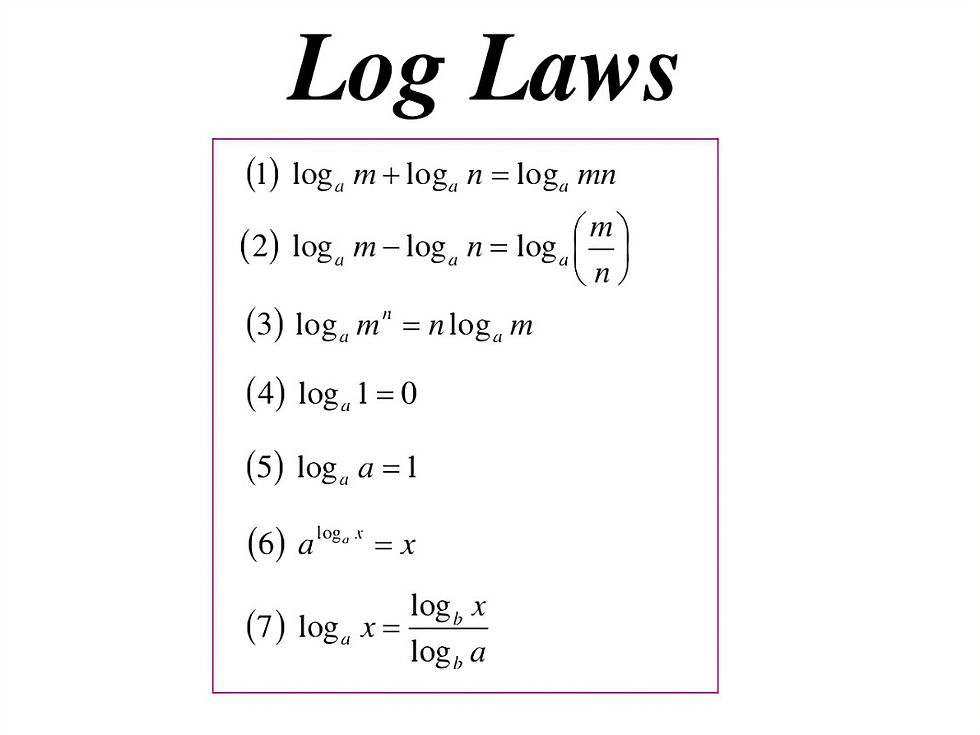Solving Exponential Equations
- Sean Melvein A. Vecina
- Jan 11, 2023
- 2 min read
Let us solve exponential equations.
This is the premise when we are evaluating exponential equations.
b^x1 = b^x2
b1 = b2
x1 = x2
Now here are some examples and steps.
2^x+1 = 8^1 Analyze and find factors for 8 that we can make them both have the same base, which is 2.
2^x+1 = 2^3 Since we use 2 as 8's place, we can raise 2 to the power of 3 so it will be equal to 8 when we revert it. If an exponent is present in the first place before we transform the base, multiply the exponent to the new one. Since 1 is present already we can multiply 3 with 1 to make the exponent 3.
x + 1 = 3 Since we have the same bases, we can bring down the exponents so we can evaluate them.
x = 3 - 1 Now simplify to find x.
x = 2
3^x-2 = 81^x+1 Transform 81 to make it 3, don't forget to raise it 4 afterwards.
3^x-2 = 3^4(x+1) After you change 81 to 3 and raise it by 4, multiply 4 by the previous exponent (x + 1)
3^x-2 = 3^4x+4 Bring down the exponents once 2 bases are similar
x - 2 = 4x + 4
x - 4x = 4 - 2 Now simplify to find x
-3x = 6
-3x/-3 = 6/-3
x = -2
9^x+4 = 27^x Since 27 can't be changed to 9, find the 2 bases similar factor, which is 3. Don't forget to raise it to its respective exponent.
3^2(x+4) = 3^3(x) Now simplify the remaining exponents before bringing it down.
3^2x+8 = 3x
2x + 8 = 3x
2x - 3x = -8
-x = -8
x = 8
25^x-3 = 1/5 Since 1/5 is in its decimal form, reciprocate to make it 5 and raise it to the exponent of -1.
25^x-3 = 5^-1 Transform 25 to 5, raise it to 2 and simplify the exponents
5^2(x-3) = 5^-1
5^2x-6 = 5^-1 Now bring down the exponents.
2x - 6 = -1 Then, simplify
2x = -1 + 6
2x = 5
2x/2 = 5/2
x = 5/2
Now here is a complex one:





Comments